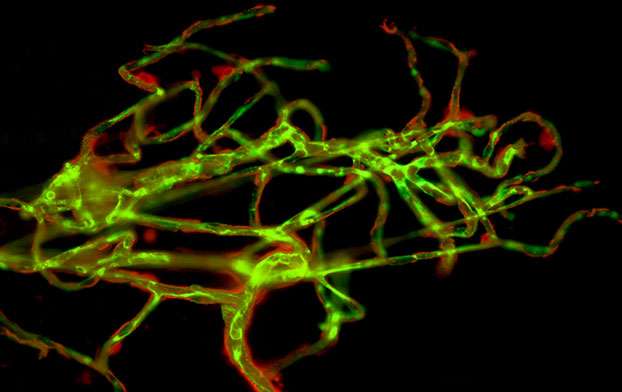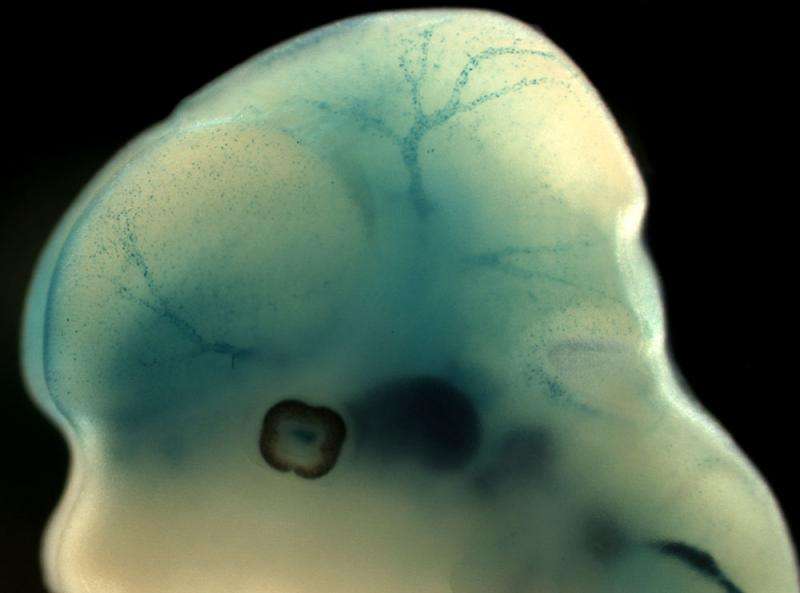Key protein may affect risk of stroke

Studies on mice reveal that a special protein in the brain's tiniest blood vessels may affect the risk of stroke. Peter Carlsson, professor in genetics at the University of Gothenburg, and his research team are publishing new research findings in the journal Developmental Cell about how the blood-brain barrier develops and what makes the capillaries in the brain different from small blood vessels in other organs.
The brain's smallest blood vessels differ from those in other organs in that the capillary walls are much more compact. The nerve cells in the brain get the nutrients they need by molecules actively being transported from the blood, instead of passively leaking out from the blood vessels.
This blood-brain barrier is vital, because it enables strict control over the substances with which the brain's nerve cells come into contact. It has a protective function that if it fails, increases the risk of stroke and other complications.
Special cell type essential to development
The smallest blood vessels, the capillaries, have a type of cell called pericytes. These are essential to the development of the blood-brain barrier. Pericytes are also found in other organs, and researchers have previously been unable to find out what gives the brain's pericytes this unique ability.
The Gothenburg research team has found that the brain's pericytes contain a protein, FoxF2, which is not present in the pericytes of other organs, and which coordinates the changes that make the blood vessels compact. FoxF2 is needed in order for the blood-brain barrier to form during foetal development.
"Mice that have too little or too much FoxF2 develop various types of defects in the brain's blood vessels," explains Peter Carlsson, professor at the University of Gothenburg's Department of Chemistry and Molecular Biology.

One gene may play a critical role
In humans, researchers have noted that major changes in a region of chromosome 6 have been associated with an increased risk of stroke, but it has not been known which of the genes in the area are responsible for this risk.
"The FoxF2 gene is an extremely interesting candidate, as it is located right in the middle of this region, and research is under way now in collaboration with clinical geneticists to investigate the extent to which variations in the FoxF2 gene affect people's risk of suffering a stroke," says Peter Carlsson.
More information: "Foxf2 Is Required for Brain Pericyte Differentiation and Development and Maintenance of the Blood-Brain Barrier." Developmental Cell DOI: 10.1016/j.devcel.2015.05.008

















